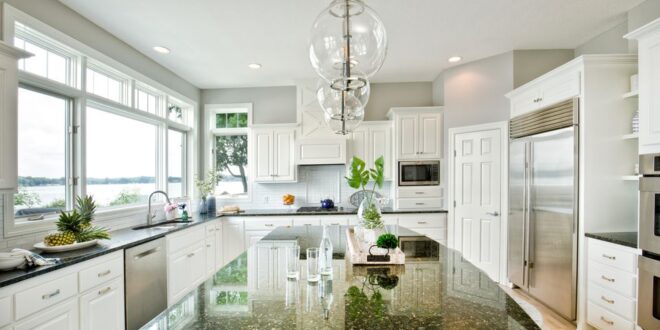The endless quartz vs. granite debate among their owners has centered around the countertop material of choice. One question has been asked persistently – which one is better? Some owners will prefer one element over the other on the grounds of aesthetics.
What are the differences between those two, and which one is better for your kitchen?
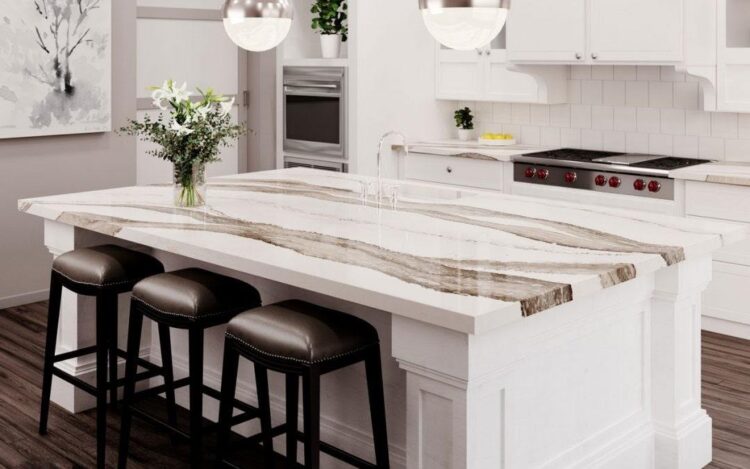
For a start, granite is a hard stone that is mined from quarries in different areas around the world. It is 100 percent natural and cut down to manageable size and then polished to an elegant finish. Quartz is 95 percent ground natural quartz, 5 percent polymer resins, and also provides a high-quality finish. Some countertops have a 93:7 ratio of natural stone and polymer resin, respectively.
Quartz vs. Granite Countertops
Appearance
Granite has a wide range of colors and patterns formed from the way it is cooled from molten material. Therefore, no two countertops are similar, which makes your kitchen unique. You have a limitless selection when choosing such a countertop.
Quartz has become highly popular due to its appearance. It looks like stone but is highly customizable. The selection process is more natural and you don’t have to search long before finding a slab that matches your color scheme.
Strength and Sturdiness
Granite is an excellent choice for kitchen countertops since it is durable. However, it is prone to chipping, cracking, and breaking if it receives a hard blow.
The other one is more substantial and thicker and makes it ideal for kitchen countertops to be used heavily. Such countertops are durable but also flexible making them withstand heavy blows that may cause chipping or cracking.
Environmentally Friendly
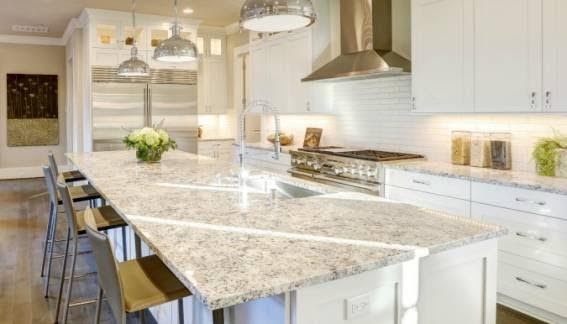
Granite countertops have to be quarried and transported to get to your kitchen, which requires a lot of energy. If you choose high-quality slabs from Italy, there are considerable transportation costs involved, posing a higher risk to the environment. Choose local stone slabs to cut back the damage to the environment.
Quartz can be more environmentally friendly since it can be manufactured locally using indigenous stone, which will cut down on emissions harmful to the environment.
Maintenance
Granite kitchen countertops are easy to clean using just soap and water. You should be careful when using oils and acids since they can stain the surface. Resealing the countertop can help prolong the life of your kitchen countertop.
Quartz is equally easy to clean using soap and water or a standard household cleaner. Such countertops have a solid surface that doesn’t require sealing. The countertop can, therefore, handle oils, wines, tomato paste, juice, coffee, and many other substances that may cause staining.
Durability
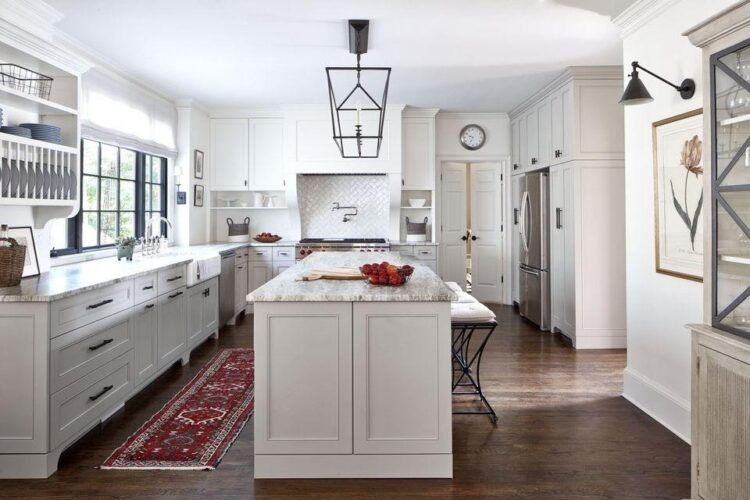
The granite countertop is prone to damage when exposed to a high impact blow or through staining if spilled liquids remain on the surface. Keep in mind that it is porous.
Quartz is a harder material compared to the first one, making it more durable. It is a durable kitchen countertop since it is not porous. Such a countertop can be kept bacteria-free. Make use of heating pads to prevent heat damage from excessively hot cooking pans.
Disadvantages
Quartz
- You may select darker colors for your countertop to provide a clean contemporary look. Avoid many different patterns and colors since it becomes difficult to hide the seams.
- Compared to granite, it is naturally less beautiful. Manufacturers are trying to make it look as beautiful as the first one, but they always fail.
- It is generally more expensive since it is human-made, and prices are controlled by the factory. It also requires sturdy construction to offer adequate support since it is more substantial.
- It discolors over time when exposed to direct sunlight. The discoloration is easily noticeable on countertops that have one area exposed to sunlight, such as the ones near windows. The exposed area will have a different color tone compared to the rest of the surface.
Granite
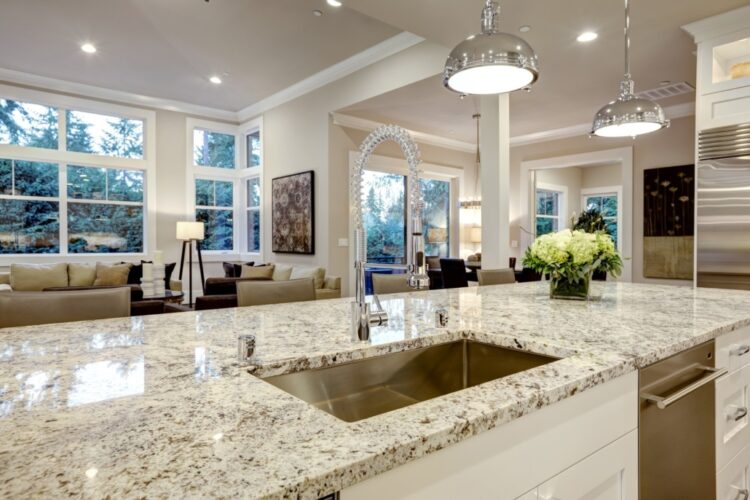
- The construction of ample countertops requires more than one slab to complete the job. The joining seams will remain visible. However, high-quality artistry by professionals from Caesarstone will ensure that the cuts are inconspicuous and match the color of its slabs.
- It is porous and absorbent by nature, which makes it prone to staining when exposed to substances such as oil, juice, and wines. It is impossible to get rid of stains. It will require sealing to prevent staining and prevent it from harboring bacteria.
- It is prone to chipping or cracking if heavy items are dropped onto the countertop.
- It has a wide variety of tones and texture, limiting its use in contemporary kitchens. The changes in color and texture can be an advantage or disadvantage depending on its application.
From the differences listed above, quartz just tips the scales in its favor owing to durability and ease of maintenance. However, granite can also carry the day with its beauty and being the slightly cheaper option. It boils down to the personal preferences of the homeowners in choosing between those two for their kitchen countertops.
In conclusion, granite and quartz countertops will increase the value of your home whether installed during construction or as a renovation project. A new stone countertop will make the home sell faster.
 Hi Boox Popular Magazine 2024
Hi Boox Popular Magazine 2024
